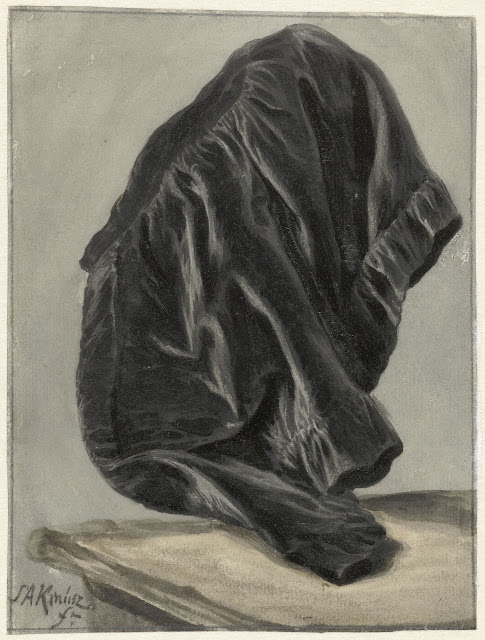This post is a collection of notes I wrote between 3.26.24 and 3.30.24. Many quotes are slightly revised from the original version for grammar and suitability. There are 21 quotes listed below chronologically. Relevant links: Information blogging guidelines (IBG), Belief analysis, Information as an optimization problem (IAAOP)
1. "I see IBG as a network of directories to organize the world's information." (3.26.24)
2. "The advantage of communicating in IBG is that it's adding to an organized, stable, lasting structure whereas other media is ever-changing and replaced by new material at the top (news feeds, TV channels, phones, social media). This is the type of media we need for the future: organized, clear, run by individuals and gets away from 'likes', algorithms and popularity... It doesn't need RSS or any technology other than links and HTML. It's super simple: build a directory network of IBG pages." (3.26.27)
3. "I am a collector at heart and collecting is the key to our problems of communication and information. Organizing is necessary for any advanced collector." (3.27.24)
4. "This is also related to the metacrisis. All problems are wrapped up into one. It's all a big miscommunication. It's all a big trust problem." (3.27.24)
5. "What does the IBG network look like? Who uses it? Who makes it? Is it effective towards addressing misinformation or making things worse? Is it good for communication compared to Twitter, Facebook, RSS and Nostr?" (3.27.24)
7. "Normal literature, writing and books are not the answer. Not podcasts or the news or a social media website. We need a new way of writing and displaying information." (3.28.24)
8. "I'm imagining my idealized IBG website. It would be 100% the best IAAOP pages for every chunk. All the chunks organized the optimal way." (3.28.24)
9. "It's all about organizing the world's information, communication and beliefs. It all overlaps and is not separate." (3.28.24)
10. "We really gotta work towards getting humanity's communication away from social media. People should log their information, beliefs and opinions in an organized network and leave it at that. A feed is too crazy and makes everything so much more temporary. It's like waves crashing down on a sandcastle. The future of communication should be like a static directory. We also need to get away from the popularity contest, likes, shares and subscribers." (3.28.24)
11. "Imagine everyone producing information and analyzing information is using IBG and there's a huge network. Academics, governments, organizations, experts, think tanks, activists, they're all adding to the IBG network. And they're curating lists but there's also people who specialize in curation. It appears as a mess, but then a curator will try to clean it up for a specific topic." (3.28.24)
12. "The question is would this be useful for addressing misinformation? On the face of it, it looks like no. A mess would be the opposite of organized. I think belief analysis has to play a role. Belief analysis is a form of IBG. The curators would be the key. And using belief analysis has to be applied to all misinformation. I just think that standardizing information to be clear is good, not bad." (3.28.24)
13. "The IBG network would be a mixture of clarity and chaos alternating." (3.28.24)
14. "I just see IBG as a way to organize the world's information and beliefs. Misinformation could spread, but I'm not sure. I mean, would it be better than what we have now? The point is being clear and organized." (3.28.24)
15. "It's easier to see IBG as a single directory made by one person... The network of IBG lovers is too unclear. How would a person use it? To discover and explore the organized world of information? I think most IBG websites would be standalone, not too linked to the IBG network." (3.28.24)
16. "Maybe I should be thinking more in terms of what science has become. It's not an organized network and IBG probably won't achieve an organized network either, although it's designed in a way that could via directories and lists. It's a style, a method of clearness." (3.29.24)
17. "IBG is a new medium. Collecting and organizing is key to humanity's communication problems. The curators play a central role in IBG's success toward organizing the world's knowledge, information and beliefs." (3.29.24)
18. "IBG is like the 'academic standard' for the future but for clarity, not academic / scientific rigor. It's a communication standard. It's an art movement. It's a political movement. The goal is to advance the human intellectual project and a large part of it is making the world more transparent and clear. IBG is a catalyst for this, along with belief analysis." (3.29.24)
19. "Clarity is the selling point of IBG. To make a world where all knowledge is transparent. This is how we address misinformation also. Standards for clarity is what's missing in the world, allowing misinformation to grow and deceive people. Misinformation thrives in a world where excessive and unclear mediums dominate, where commentary dominates over information." (3.29.24)
20. "The question is how can we promote a style of clarity? We need a standard or a role model for clarity." (3.29.24)
21. "My focus now is on why IBG is good. And belief analysis. And what role they could play in the future of humanity. IBG won't be a centralized thing, but more like a method like the scientific method. Importantly, it's a mechanism to promote clarity, or a role model. We're tired of information hidden in paragraphs and long essays. We want clear information and transparency. The next frontier is making the obscure and difficult knowledge transparent and clear. Contests of IAAOP. IBG directories and networks curated by individuals. Organized knowledge. Belief analysis for improving communication of opinions." (3.30.24)
License: CC BY-SA 4.0















